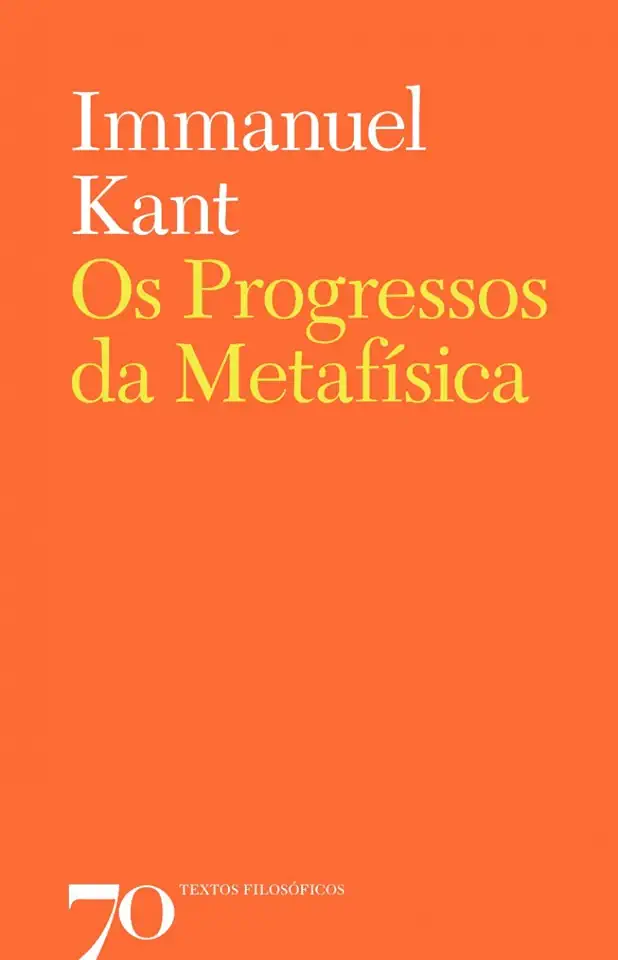
The Progress of Metaphysics - Immanuel Kant
The Progress of Metaphysics: Immanuel Kant
A Journey into the Depths of Human Reason
Immanuel Kant's "The Progress of Metaphysics" is a seminal work in the history of philosophy, offering a profound exploration of the nature of human reason and its limits. Kant delves into the fundamental questions that have captivated thinkers for centuries, challenging conventional assumptions and paving the way for a new era of philosophical inquiry.
Unveiling the Architecture of Knowledge
Kant begins by examining the foundations of human knowledge, arguing that our understanding of the world is shaped by the structure of our own minds. He introduces the concept of transcendental idealism, positing that space and time are not objective realities but rather subjective forms of intuition that organize our experience. This revolutionary idea challenges traditional notions of reality and opens up new avenues for understanding the relationship between the mind and the world.
The Critique of Pure Reason
Kant's critique of pure reason is a cornerstone of his philosophical system. He meticulously analyzes the limits of human reason, demonstrating that certain aspects of reality, such as the existence of God or the nature of the soul, lie beyond the reach of our cognitive faculties. This critique serves as a powerful antidote to dogmatic thinking and encourages a more humble and rigorous approach to philosophical inquiry.
The Transcendental Deduction
One of the most significant contributions of "The Progress of Metaphysics" is Kant's transcendental deduction of the categories. He argues that the mind possesses a set of innate categories, such as substance, causality, and unity, which structure our experience and make knowledge possible. This groundbreaking concept revolutionizes the understanding of human cognition and provides a foundation for a new theory of metaphysics.
The Antinomies of Reason
Kant's exploration of the limits of reason leads him to uncover a series of contradictions, or antinomies, that arise when we attempt to apply our cognitive faculties to certain metaphysical questions. These antinomies challenge the traditional notion of a unified and coherent metaphysical system and highlight the inherent limitations of human reason.
The Moral Law and the Critique of Practical Reason
Kant's philosophical journey extends beyond the realm of pure reason into the领域of practical reason, focusing on the moral foundations of human action. He argues that the moral law is not derived from experience but rather is a priori, existing independently of our sensory perceptions. This ethical framework, grounded in the categorical imperative, provides a universal and binding foundation for moral decision-making.
The Critique of Judgment
In the final part of "The Progress of Metaphysics," Kant turns his attention to the faculty of judgment, exploring our ability to make aesthetic and teleological judgments. He argues that aesthetic judgments are based on a harmony between the imagination and the understanding, while teleological judgments involve the perception of purpose or design in nature. These insights shed light on the complex interplay between our cognitive and aesthetic faculties.
A Legacy of Profound Influence
"The Progress of Metaphysics" has had a profound and lasting impact on the development of Western philosophy. Kant's rigorous analysis of human reason and his groundbreaking insights into the nature of knowledge have shaped the course of philosophical thought for generations. This seminal work is a must-read for anyone seeking to understand the depths of human reason and the limits of our understanding of the world.
Embark on an Intellectual Odyssey
"The Progress of Metaphysics" is an invitation to embark on an intellectual odyssey, challenging conventional wisdom and exploring the frontiers of human knowledge. Kant's philosophical journey is both rigorous and rewarding, offering a profound understanding of the nature of reality, the limits of reason, and the foundations of morality. Immerse yourself in this philosophical masterpiece and discover the transformative power of Kant's thought.